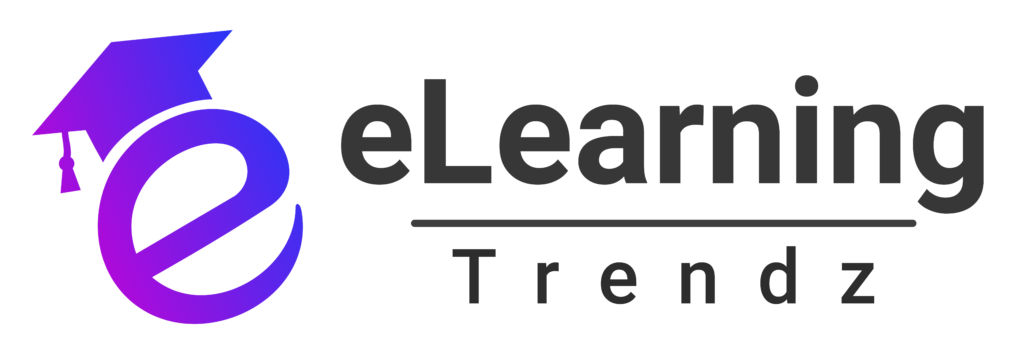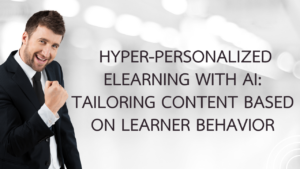The corporate learning environment is evolving at an unprecedented rate, driven by technological advancements, changing workforce expectations, and the rise of remote and hybrid work models. Learning Management Systems (LMS) are at the forefront of this transformation, providing organizations with the tools to deliver engaging, scalable, and impactful training programs.
Learning Technologies’ 2022 report reveals that 74% of organizations are increasing their investment in digital learning, particularly in LMS platforms.
To stay competitive and foster a culture of continuous development, organizations need to adapt to the emerging trends shaping the future of corporate learning. Here are 5 key LMS trends to revolutionize how employees engage with training, improve their skills, and grow professionally.
AI-Driven Personalized Learning
Best for: Adaptive, Tailored Learning Journeys
AI is already transforming LMS platforms by making learning experiences more personalized and adaptive. Future LMS platforms will leverage AI to create hyper-personalized learning paths based on the learner’s progress, preferences, performance, and even behavior. This means each employee will receive unique content, recommendations, and pacing based on their individual learning style, leading to more effective training outcomes.
Key Benefits:
- Adaptive Learning: AI can analyze a learner’s performance and adapt course content in real-time to fit their needs, ensuring they are continually challenged without feeling overwhelmed.
- Personalized Course Recommendations: AI will suggest relevant courses, resources, or skills development paths based on the learner’s career aspirations, previous learning behavior, and goals.
- Predictive Analytics: AI will forecast learner needs and potential challenges, enabling proactive support and customized interventions.
As reported by McKinsey, AI in learning and development can increase productivity by 20%, making this trend one of the most impactful shifts for LMS platforms in the future.
Immersive Learning with Virtual and Augmented Reality (VR/AR)
Best for: Real-World Simulations and Interactive Training
Virtual Reality (VR) and Augmented Reality (AR) technologies are set to take LMS platforms to the next level by offering immersive, hands-on learning experiences. Future LMS platforms will integrate VR/AR capabilities, enabling employees to engage in simulations of real-world scenarios, like machinery operation, customer interactions, and more, all within a safe and controlled virtual environment.
Key Benefits:
- Immersive Learning: VR/AR can create realistic simulations for complex tasks, offering employees a chance to practice in environments that mimic real-world challenges.
- Hands-On Training: Employees can engage in realistic scenarios—whether operating equipment, performing medical procedures, or managing difficult customer service situations—without risk.
- Increased Retention: Studies have shown that immersive learning experiences improve knowledge retention by 75%, making VR/AR an effective tool for mastering critical skills.
According to PwC, VR training has been shown to improve learner retention by four times compared to traditional classroom learning, highlighting its potential in future LMS trends.
Microlearning and Just-in-Time Learning
Best for: On-Demand Learning and Bite-Sized Content
The shift toward microlearning is expected to intensify, with organizations moving toward delivering small, focused content pieces that employees can access on demand. Microlearning caters to the need for quick, accessible, and highly focused training that can be consumed during breaks, in-between tasks, or on mobile devices. In the future, LMS platforms will continue to evolve to support just-in-time learning, delivering bite-sized content at the exact moment it’s needed.
Key Benefits:
- On-Demand Access: Learners can access short, concise lessons exactly when they need the information, increasing the effectiveness of learning on the job.
- Higher Engagement: Short content formats are easier to digest, helping to keep employees engaged and motivated to complete training.
- Time Efficiency: Microlearning enables employees to fit training into their busy schedules, making learning more accessible and less disruptive to daily tasks.
Gartner predicts that by 2025, 75% of the global workforce will engage in some form of microlearning, making this a critical trend in the evolution of LMS platforms.
Social Learning and Peer Collaboration
Best for: Building a Community-Driven Learning Environment
The future of corporate LMS platforms will place a strong emphasis on social learning—integrating tools and features that allow employees to learn from one another, collaborate on projects, and engage in discussions about training content. The rise of social learning networks within LMS platforms will allow learners to share experiences, ask questions, and provide feedback to their peers, promoting a community-driven approach to learning.
Key Benefits:
- Peer-to-Peer Learning: Employees can share insights, resources, and experiences, fostering a more collaborative and supportive learning environment.
- Community Building: Discussion boards, chat groups, and forums will become common features in future LMS, encouraging employees to interact with colleagues and exchange knowledge.
- Increased Engagement: Social learning enhances engagement by making learning more interactive and connected to the workplace culture.
A LinkedIn Learning report found that 83% of learners prefer to learn from peers and experts within their organization, indicating the growing importance of social learning features in LMS platforms.
Data-Driven Insights and Predictive Analytics
Best for: Performance Tracking and Learning Optimization
Data-driven insights are becoming a vital component of future LMS platforms. With the help of advanced analytics and machine learning, LMS platforms will be able to generate actionable insights about learner performance, engagement, and progress. These insights will enable learning and development teams to continuously improve training programs and provide real-time support where needed.
Key Benefits:
- Performance Tracking: LMS platforms will be able to track individual learner progress, identifying strengths and weaknesses to provide targeted interventions.
- Predictive Learning: Machine learning algorithms will predict future learning needs and trends, allowing organizations to proactively address skill gaps.
- Real-Time Data: Data analytics will provide actionable insights in real-time, helping organizations adjust training strategies and content to meet immediate learner needs.
Forbes reports that 84% of business leaders believe that the use of data analytics in employee training will boost business performance, reinforcing the critical role of data-driven LMS trends in the future.
Conclusion
Innovative LMS trends driven by technology, data, and evolving employee needs are shaping the future of corporate learning. AI-powered personalized learning, immersive VR/AR training, microlearning, social learning, and data-driven analytics are set to revolutionize how organizations manage training and development.
By staying ahead of these emerging trends, organizations can create dynamic, engaging, and effective learning environments that not only improve employee performance but also foster a culture of continuous learning and growth. Embracing these technologies in your LMS strategy will ensure that your workforce is ready to adapt to the changing demands of the modern business world.










